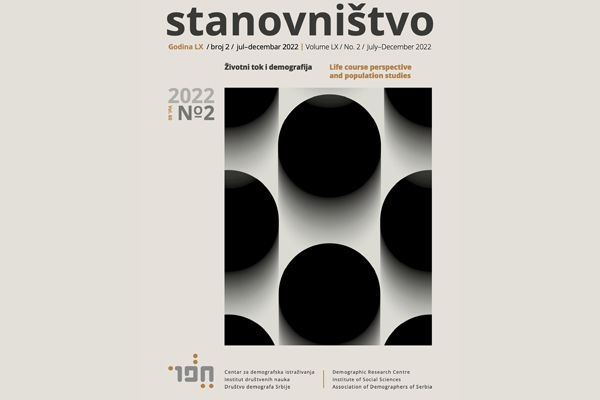Notifications list
Political participation and life course transitions among young people in Europe
Published: 09.01.2023.

Dragan Stanojević, PhD and Anja Gvozdanović, PhD are the authors of the scientific paper “Political participation and life course transitions among young people in Europe“. The paper is published in the journal „Stanovništvo“, 60 (2).
From the Abstract: The subject of this article is the analysis of the relationship between the life course of young people and political participation in Europe. Results show that young people’s transitions in education, work, and family in European countries are directly associated with institutional and non-institutional forms of political participation. Entering new roles and obtaining or losing resources (financial, social, or time) forms a more or less stimulating context for involvement in the political field. Both institutional and non-institutional forms of participation are positively associated with the study experience, and this indicator is the most consistent predictor of both forms of participation. Young people who go through higher education better understand the socio-political context and have more knowledge of how they can influence social processes. The transition to the labour market also shows positive associations with political participation, but only with certain practices, so our hypothesis is only partially correct. Young people who work vote more often, are active within parties, contact political representatives, and are active within NGOs. Entering the parental role leads to a certain repackaging of priorities, and the lack of available time reduces the probability of participation. With the growth of democracy within society, young people are more willing to participate in almost all forms of non-institutional practices (except for demonstrations) and to contact politicians and participate in campaigns more often. The hypotheses with which we examined the associations between context, life events, and participation generally did not prove to be justified, and require further research and explanation.
The article is available at the link.
